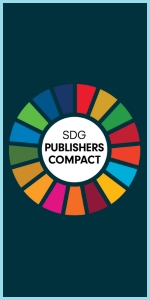
Functional Plant Biology
Volume 45 Number 8 2018
FP17301Roles of hydrogen gas in plants: a review
Hydrogen gas (H2) – a unique signal molecule – has broad application prospects in biology. Here, we focus on the fact that H2 has positive effects on various developmental processes and abiotic stresses through enhancing antioxidant defense system and regulating related genes in plants. With its promising application in plants, hydrogen agriculture will be welcomed in the near future.
FP17281Differential protein expression reveals salt tolerance mechanisms of Desmostachya bipinnata at moderate and high levels of salinity
Saline soils limit crop productivity worldwide and highlight the need to study plants of arid-saline lands. The mechanism of survival of Desmostachya bipinnata through proteomic analysis was determined by shortlisting 103 plant proteins involved in energy and salt stress regulation systems. Results may help in developing a salt tolerant crop that could enhance productivity under saline conditions.
FP17134Phosphorus deficiency alters scaling relationships between leaf gas exchange and associated traits in a wide range of contrasting Eucalyptus species
Leaf and soil phosphorus have been identified as key factors modulating metabolic rates at leaf and ecosystem levels. We investigated the effect of phosphorus deficiency on leaf trait relationships within a single genus (Eucalyptus). Our results highlight the importance of phosphorus availability in determining relationships between metabolic performance and leaf structural and chemical composition traits in a genus widespread across the Australian continent.
FP17248Mild preflowering drought priming improves stress defences, assimilation and sink strength in rice under severe terminal drought
Drought stress is a major constraint for global rice production. Short-term mild drought priming could improve CO2 assimilation and sink strength under severe drought. Priming can be considered as an effective strategy in rice to reduce severe yield penalties under drought stress.
FP17232Improved leaf nitrogen reutilisation and Rubisco activation under short-term nitrogen-deficient conditions promotes photosynthesis in winter wheat (Triticum aestivum L.) at the seedling stage
Superfluous N is consumed during wheat cultivation, causing environmental problems. Thus N fertiliser applications must be reduced without decreasing yield, which can be achieved by characterising the mechanism of adaptation to low N and breeding N-efficient cultivars. We found that under short-term N-deficient conditions, tolerant cultivars can efficiently reuse stored NO3– and photorespiration-released NH4+ to maintain Rubisco content, and promote Rubisco activation to improve photosynthesis, which could help develop long-term N-deficiency tolerance.
FP17333Rising [CO2] changes competition relationships between native woody and alien herbaceous Cerrado species
Rising [CO2] is likely to influence plant functioning as well as structure and composition of native ecosystems. Results demonstrated that rising CO2 will improve biomass allocation to vegetative organs responsible for acquiring crucial resources for growth. The shift in the pattern of biomass allocation would improve the competitive capacity of woody over herbaceous species and potentially change important ecological relationships in the savanna ecosystem of Cerrado.
FP17268Diurnal variation in gas exchange and nonstructural carbohydrates throughout sugarcane development
To further increase sugarcane yield, it is necessary to understand the dynamics of carbohydrate accumulation and whole-plant partitioning. This paper presents the diurnal variation in gas exchange and nonstructural carbohydrates in the leaves, culm and roots of sugarcane during different stages of development in a field experiment. It gives insights into how the environment and development control sugar and biomass accumulation.




